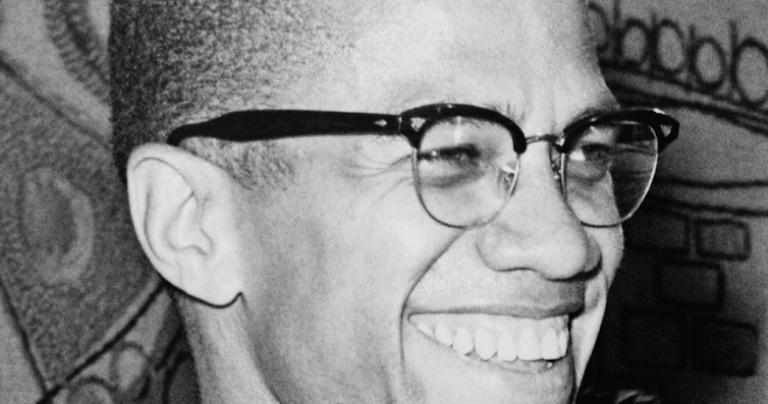 Malcom X never grew as old as I am now. Instead, he was gunned down in the (seemingly) eternal racial conflict in America. Like John Brown, you can admire much about Malcolm, if you cannot ever agree with him. He is an American original: the product of this Republic, deeply flawed and great. The Autobiography of Malcolm X was must reading when I was a young man, then faded into the background for a time, but is now considered must reading again now that I am a (much) older man.
Malcom X never grew as old as I am now. Instead, he was gunned down in the (seemingly) eternal racial conflict in America. Like John Brown, you can admire much about Malcolm, if you cannot ever agree with him. He is an American original: the product of this Republic, deeply flawed and great. The Autobiography of Malcolm X was must reading when I was a young man, then faded into the background for a time, but is now considered must reading again now that I am a (much) older man.
It is not my place or within my competence to judge Malcolm’s place in American history, but I can say that reading his autobiography (as told to Alex Haley) influenced me deeply as a young man and haunts me as an older man. There are books that you come back to as an older man and find disappointing, but a few that keep teaching you. This is one.
When I was a young man, the book reminded me of truths about America I had been taught (my family was good that way), but that were easy to ignore or whitewash. Malcolm X was fierce and manly in his condemnation of racists and the power structure that made centuries of racism possible. The Autobiography is brilliant in that Malcolm’s views evolve over time. As a child he is patronized, bullied, and verbally demeaned and as an adult activist he develops a corresponding vocabulary for his tormentors. It was hard to read “white devils” applied to me as a young adult, but then that helped me feel a bit of what “n-“ sounded like to my neighbors. The difference was that Malcom was justly condemned by most leaders (white and black) for his usage while my African-Americans brothers and sisters lived in a nation where racist jokes, slights, and language are still common. Of course, worst of all this language was (when I was a boy) backed up by enforced segregation.
This still hurts. Malcolm X used the image of a knife stuck into the back of African-American people to describe the situation in his time. He pointed out that pulling that knife out a few inches was progress, of a sort, but even when the knife was pulled all the way out, a scar would remain.
That is an image that sticks with a young man.
What strikes me in rereading this book in my fifties is the waste. How many world class genius types like Malcolm X did statist racism destroy? What could have been?
Malcom was nearly destroyed by bad choices that racism made easier. He was saved from immediate destruction by the teachings of the Nation of Islam, but that group was and is bad. It gets Islam wrong, embraces forms of racism, and has a deep strain of anti-Semitism. Malcom came up from drug addiction, sexual immorality, and ignorance through this deeply twisted ideology. The good news is that Malcom X was a mind awake and so gradually saw the problems with the Nation of Islam. He embraced more mainstream Islam, repudiated racism, yet kept his edge. He was changing, becoming better, more mature, liberated, and then he was murdered.
He was never content with injustice, but he was becoming a better man. Sadly, he was murdered in process. Growing up he wanted to be a lawyer, but a racist teacher discouraged him and he never got much formal education. He fought racism, but the system twisted him. He did not make excuses himself for the harm he did, but as an older man I grieve the loss of his genius.
The Autobiography is harsh toward Christianity in America and God knows most of it is deserved. Yet Malcom X does not get the African roots of Christianity right. He skims over Ethiopia too quickly and embraced Islam too uncritically. There were a few Christian ministers he came to admire by the end of his life. One wonders what he would have thought if he had lived longer.
Mostly, as an older man I wanted to listen and not argue. The errors Malcom X made do not tempt me, but the truths he spoke then are still true. He was fierce in asserting that he was a man and that he must be treated as a man. He was dedicated to the truth that black is beautiful and good.
To know a great book, even one that is flawed, starts in loving what is good in that book. The Autobiography of Malcolm X is one to read in humility. If you look like me and the text makes you angry, keep reading. There is hope for our Republic if we keep reading, as my pastor would say: “inshallah.”











